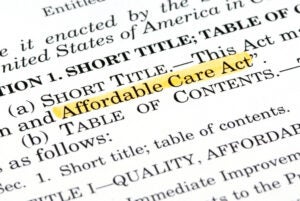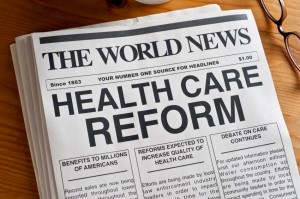Category: Health reform
After H.R.1, Millions More Could Lose Marketplace Coverage

Marketplace enrollees are facing threats to their health coverage and healthcare affordability as a result of the recently enacted budget reconciliation bill. CHIR expert Karen Davenport discusses the impending expiration of enhanced premium tax credits, which would drastically compound the coverage losses of H.R. 1 for American consumers.
The Dismantling of Obamacare Starts August 25 – Unless Litigation Can Stop It

The first of numerous federal policies that reverse recent coverage gains under the the Affordable Care Act are scheduled to go into effect on August 25, but two lawsuits have been filed to block them. CHIR’s Sabrina Corlette reviews the imminent policy changes, their impact, and the legal challenges to watch.
Federal Officials Announce Steps To Strengthen Health Care Price Transparency

In May, the Departments of Health and Human Services, Labor, and the Treasury announced several actions to enhance health care price transparency. In her latest piece for Health Affairs Forefront, Stacey Pogue discusses how these actions mark the start of a process to make hospital and health plan price transparency data more accessible and useful.
No Surprises Act Arbitrators Vary Significantly In Their Decision Making Patterns

IDR entities have come to play an instrumental role in OON payments, but entities’ determinations and decision-making practices lack transparency. In their latest piece for Health Affairs Forefront, Kennah Watts and Jack Hoadley analyze variation IDR entities’ decision-making patterns and discuss the implications for the IDR process.
A Setback, Not a Defeat: Our Work to Ensure Access to Affordable, High Quality Health Care Continues

President Trump’s signature on H.R. 1, the budget reconciliation bill, will lead to upwards of 17 million people losing their health insurance and millions more with higher barriers to accessing care. At CHIR, we’ll be working to minimize the law’s harms, document its effects, and partner with those seeking to reverse its worst abuses.
Explore the Data: Interactive Map of Dental Coverage Through the Marketplaces
Independent Dispute Resolution Process 2024 Data: High Volume, More Provider Wins

While the independent dispute resolution (IDR) process is intended to lead to fair outcomes for out-of-network payment, new analysis demonstrates unexpectedly high use of the IDR process, mostly by private-equity-backed providers that win often and win large. In their latest piece for Health Affairs Forefront, Jack Hoadley, Kennah Watts, and Zachary Baron illustrate trends in the IDR process and explore implications for costs.
Testimony of Sabrina Corlette, J.D. before the U.S. House of Representatives Ways & Means Health Subcommittee – June 25, 2025

The U.S. House of Representatives’ Ways & Means Health Subcommittee recently held a hearing about ways to advance digital health technologies. CHIR expert Sabrina Corlette was one of the invited panelists, warning the committee that, while these new technologies hold promise, consumers can only benefit from them if they have access to affordable, high quality health insurance.
Early 2026 Rate Filings Show Marketplace Policy Changes Contribute to Eye-Popping Rate Increases

This year, insurers are setting their rates for 2026 while Congress and the administration weigh several policies that are projected to cause premiums to spike and the number of people with Marketplace coverage to plummet. In a new blog, CHIR experts investigate early 2026 rate filings and related analysis to explore how insurers are responding to an array of anticipated federal ACA policy changes and uncertainty around them.


